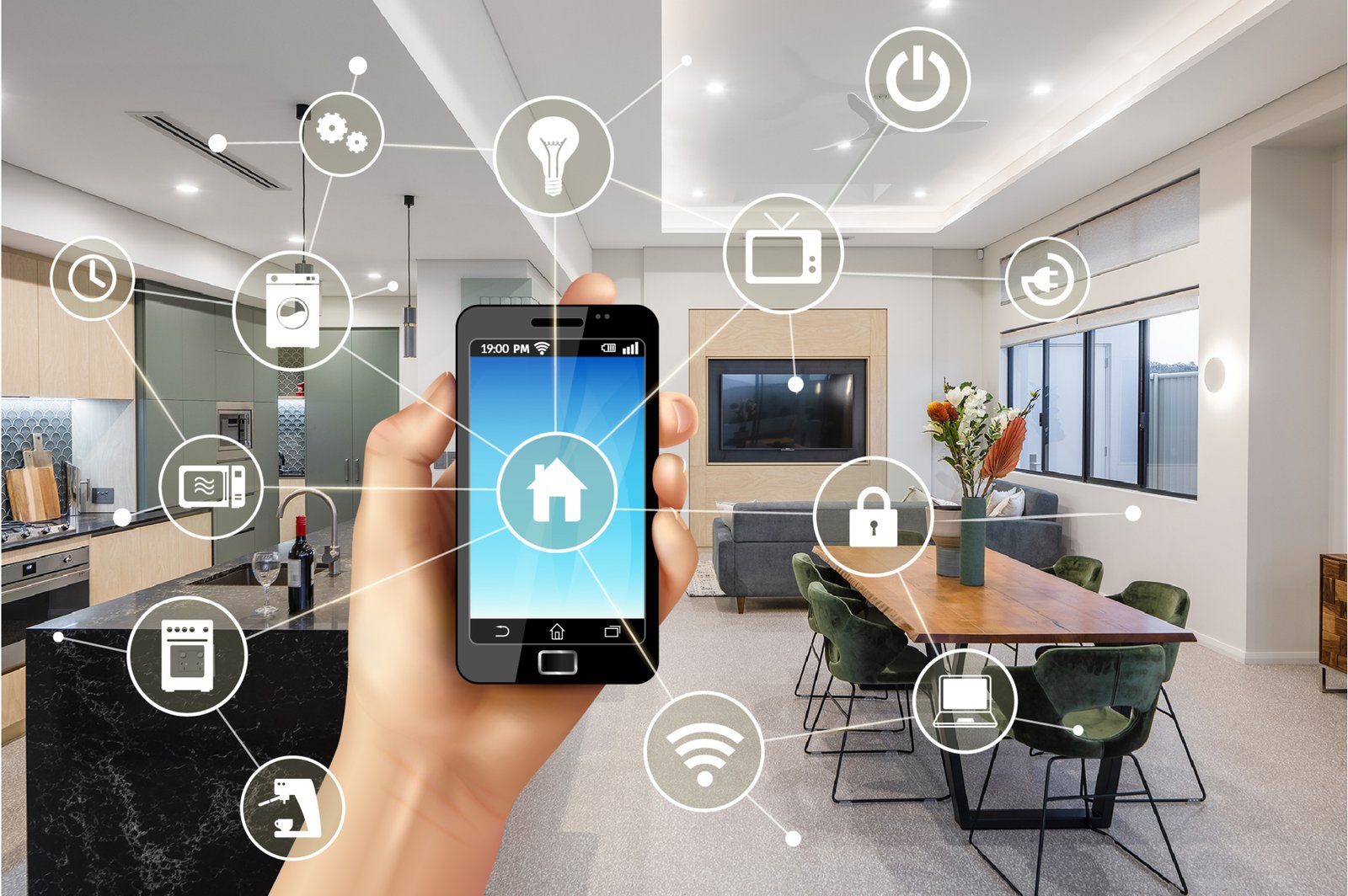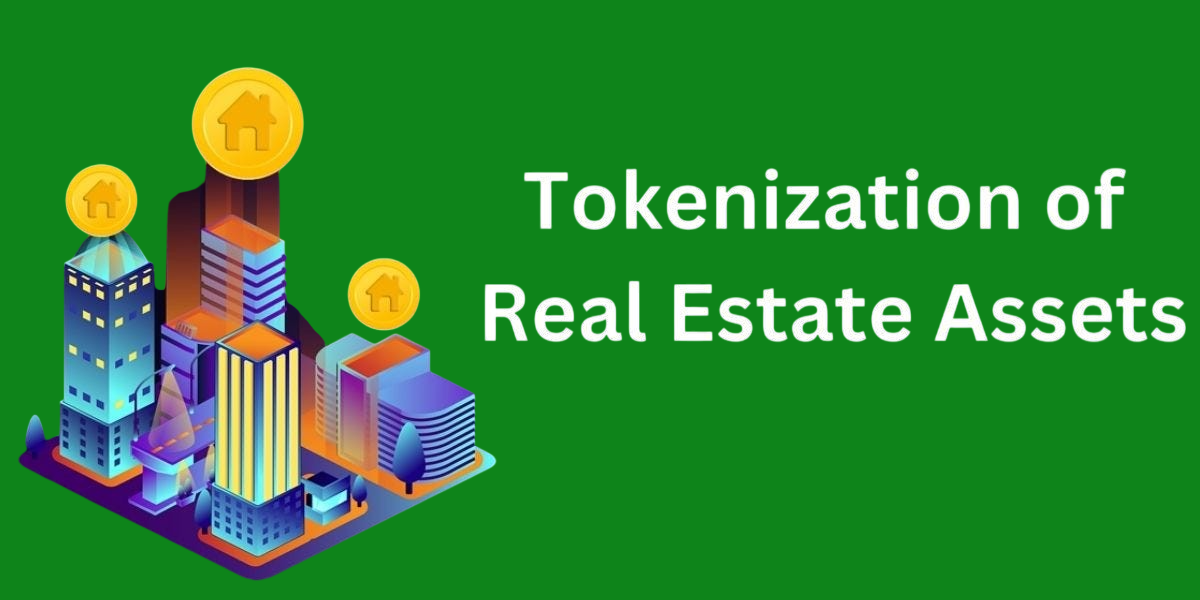Technology and real estate have come together in the past few years to make a big change in how homes are designed, sold, and judged. As smart devices, home automation systems, and energy-efficient technologies become more common, “smart home real estate” is becoming an important part of how much a property is worth and how interested buyers are. This in-depth guide looks at how technology is changing the real estate market, focusing on smart homes, their features, their value, and the long-term effects on homeowners, buyers, and industry professionals.
What Does It Mean to Have a Smart Home?
A smart home has technology that lets homeowners control different systems from a distance or through automation. Lighting, heating and cooling (HVAC), security, appliances, and entertainment devices are all part of these systems. Smart homes use the Internet of Things (IoT) to make life easier, safer, more energy-efficient, and more personalized.
Some Common Features of Smart Homes Are:
- Smart thermostats like Nest and Ecobee
- Lighting systems that work on their own
- Voice-controlled helpers like Google Assistant and Amazon Alexa
- Smart locks and security cameras
- Smart appliances
- Systems for managing irrigation and landscaping
- Platforms for monitoring and controlling energy
These features are no longer seen as extras; they are now standard expectations for people buying homes today.
The Rising Need for Smart Home Real Estate
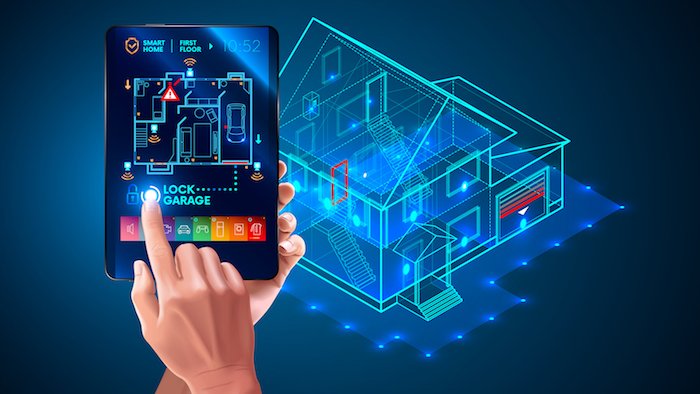
Smart home real estate is in high demand because more and more people are tech-savvy and care about the environment. Coldwell Banker did a survey and found that more than 80% of homebuyers are more likely to buy a home if it has smart technology in it. This demand is especially strong among Millennials and Gen Z buyers, who care a lot about convenience, automation, and sustainability.
What Homebuyers Want
People who want to buy a home today want one that is ready to move into and has the latest technology. Smart lighting, HVAC systems that can be controlled from afar, and security features can all affect a buyer’s choice. These technologies not only make life better every day, but they also give you peace of mind and the chance to save money.
Value of Smart Home Sellers
Adding smart home features can greatly increase the value and marketability of a property for sellers. A smart home with a lot of features might sell faster and for more money than a regular home. The Consumer Technology Association did a study that found that smart home products can make a home seem 3% to 5% more valuable.
Smart Home Features That Affect the Value of Real Estate
Not all upgrades to smart homes are the same. Some features are especially appealing to buyers and can make a home worth more.
1. Intelligent Security Systems
Homeowners are very worried about their home security. Smart cameras, video doorbells (like Ring), and keyless entry systems make things safer and easier. Traditional systems don’t have real-time alerts and remote monitoring, which add an extra layer of protection.
2. Thermostats That Are Smart
A lot of the energy used in homes goes toward heating and cooling. Smart thermostats let homeowners set the temperature based on their schedules or preferences. They often learn habits over time to use energy more efficiently. This could save you a lot of money on your utility bills.
3. Lighting That Uses Less Energy
LED smart bulbs and automatic lighting systems can save energy and change the lighting based on the time of day, how many people are there, or what the user wants. This not only saves money, but it also helps the environment.
4. Window Coverings That Work on Their Own
You can set smart blinds and curtains to open and close based on the weather, the time of day, or a schedule. This helps keep the temperature inside at a comfortable level without using HVAC systems as much, which saves energy.
5. Appliances That Are Smart
Smart appliances make life easier and save money. For example, refrigerators that keep track of food inventory and washing machines that run at off-peak times. They may not directly raise the value of a home, but they do make it more appealing overall.
Long-Term Value and Energy-Efficient Homes
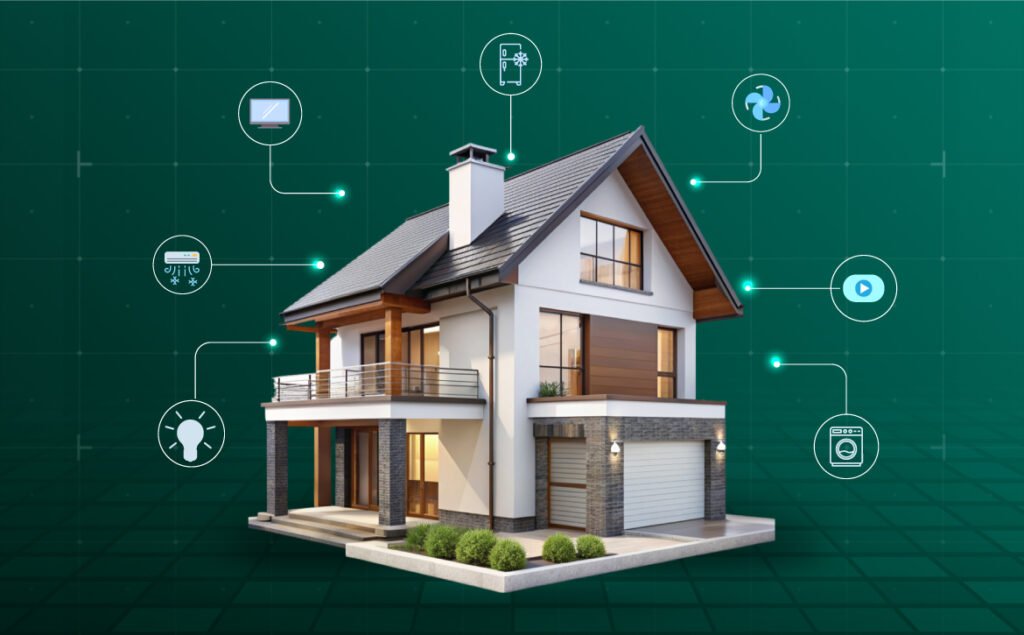
Smart homes and energy-efficient homes often go together. Not only are technologies that use less energy and leave a smaller carbon footprint good for the environment, they’re also good for your wallet and resale value.
Standards and Certifications for Building
More and more home listings include information about programs like LEED (Leadership in Energy and Environmental Design), Energy Star, and Net Zero. These standards show that you use energy, air, water, and the environment in a way that has a low impact on the environment.
Savings on Utilities
Homeowners can save thousands of dollars over the life of a mortgage by living in an energy-efficient home. Smart thermostats, LED lights, and solar panels are not only good for the environment, but they also help homes sell faster in a competitive real estate market.
How Home Automation Affects Real Estate Deals
Getting the House Ready Before Listing
Real estate agents now tell sellers to show off or even add smart home features before putting their homes up for sale. Homes that are marketed with smart technologies often look better in pictures, stand out more in online listings, and get more attention during showings.
Staging and Smart Tech
Smart devices that let people interact can make virtual tours and in-person showings better. Showing off smart lighting scenes, automated shades, or a voice-activated assistant can make the buying process more memorable.
Things to Think About When Getting an Appraisal
Even though appraisers are still figuring out how to measure the value of smart homes, some are starting to take these improvements into account, especially when they are backed up by energy savings or sales data from similar homes.
Things to Think About and Problems
Smart homes have a lot of benefits, but homeowners and buyers should also be aware of possible problems.
1. Safety and Privacy
As more devices connect to the internet, people are becoming more worried about data privacy and cybersecurity. Homeowners need to make sure they use strong passwords, keep their firmware up to date, and choose brands with secure platforms.
2. Technology Becoming Out of Date
Smart technology changes quickly. What is cutting-edge now may not be in five years. It’s important to pick systems that let you make changes and add new features, and to stay away from solutions that are too proprietary.
3. Problems With Compatibility
Not all smart devices work well with each other. Homeowners should think about using ecosystems like Google Home, Amazon Alexa, or Apple HomeKit to make sure that all of their devices work together smoothly.
Smart Home Real Estate Tips for Buyers and Sellers
For People Who Want to Buy:
- Get a Smart Home Disclosure: Make sure the seller gives you a full list of all the smart devices, apps, and warranties that can be transferred.
- Check for Integration: Learn how the smart systems work together. Are they separate devices, or are they part of a central hub?
- Think About Energy Ratings: To save the most money in the long run, look for homes with certified energy-efficient features.
For People Who Want to Sell:
- Choose Your Upgrades Carefully: Concentrate on smart home features that give you a good return on investment, such as lighting, thermostats, and security.
- Give Documentation: Make sure buyers have access to manuals, setup instructions, and login information.
- Stage With Smart Tech in Mind: Show how your home’s tech works during showings or in videos that show the home.
Examples From the Real World
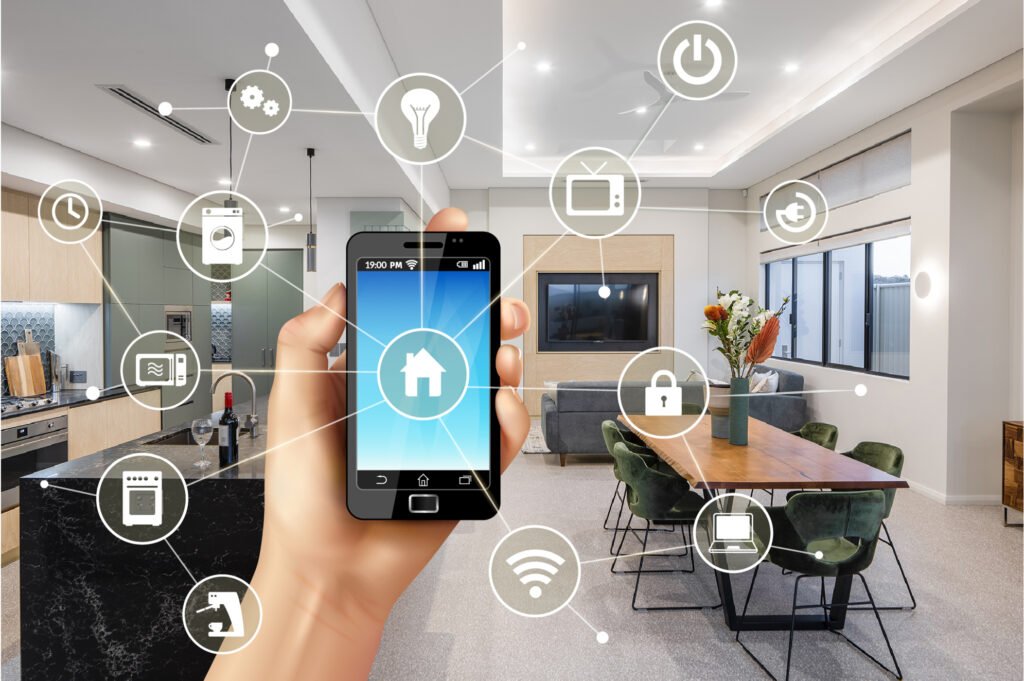
Case Study 1: Upgrading a Suburban Area
A seller in a suburban area outside of Austin spent $5,000 on smart home upgrades like a smart thermostat, lighting system, and security cameras. The house sold in less than a week for 12% more than the asking price and got a lot of offers.
Case Study 2: How to Save Energy in a City Condo
A condo in downtown Chicago advertised its smart lighting, advanced HVAC system, and LEED certification in a big way. The buyer said that long-term energy savings were a big reason for the decision, and it sold faster than similar units.
Case Study 3: Trends in New Construction
Smart home features are now standard in homes built all over the U.S. For instance, all new homes in Phoenix and Denver now come with smart thermostats, security systems, and energy-monitoring dashboards.
The Future of Smart Home Real Estate
Smart technology will play an even bigger role in real estate as it continues to change. Some things that might happen in the future are:
- AI-powered home management
- Advanced systems for storing energy
- Property deals that use blockchain
- Digital twins for taking care of property
These new ideas will make smart homes even more useful, attractive, and easy to sell.
In Conclusion, a Permanent Change in Real Estate
Smart home real estate is not just a fad; it’s a fundamental change in how homes are built, valued, and lived in. Smart technology is now an important part of modern real estate because it can make homes more valuable, more energy-efficient, and easier to live in.
It’s important for buyers, sellers, investors, and agents to all understand how smart home features work in today’s market. People who accept this change will benefit now and in the future, as technology keeps changing what it means to live well at home.
This guide is meant to be a lasting resource for anyone looking to buy or sell a smart home. It focuses on timeless strategies and core principles like energy efficiency, automation, and sustainable design.
Don’t miss:


